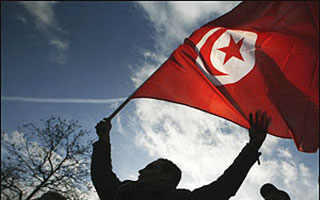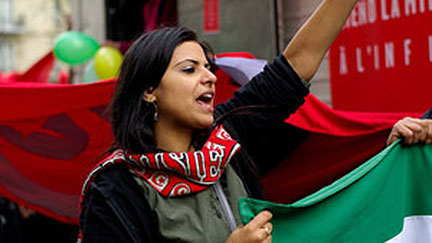Arab Spring
Council of Europe and Arab Spring

After Secretary General Thorbjørn Jagland visited Tunisia in February and offered the Council of Europe's practical cooperation, efforts are underway – from the Parliamentary Assembly and the Venice Commission, to the Pompidou Group and the North-South Centre.

Women have been at the forefront of the Arab Spring. Many relished the promise of positive change when a series of democratic uprisings erupted in Tunisia and spread across Egypt, Libya, Yemen, Syria and the Gulf.
Women took a stand for civil society across the region and strove for a new sense of equality, long suppressed under old, patriarchal regimes.
"By offering a platform to speak out for women's rights, the Council of Europe plays its part to keep women's rights in Arab Spring countries in focus", said author and journalist Souhayr Belhassen, joint winner of the Council of Europe's North-South Prize this year. During a visit to Strasbourg on 12 March 2012, she highlighted a petition published worldwide and signed by thousands of people – including celebrities – urging Arab Spring countries to treat women with dignity, equality and respect.
On the occasion of women's day, Council of Europe Secretary General Thorbjørn Jagland said: "It is important for all of us to recognise the contribution of women in driving progress and reform, and it is essential that women's voices are now heard in building new Arab societies, and in fighting discrimination and stereotypes. If women are again left out, the promising Arab Spring could become a new winter."
© Antoine Walter / Tunisia, 15 January 2011

An award-winning journalist, Olfa Belhassine is not only a top reporter for the Tunisian daily "La Presse", but has also published articles on the Arab Spring this year in major French publications including "Le Monde" and "Libération".

